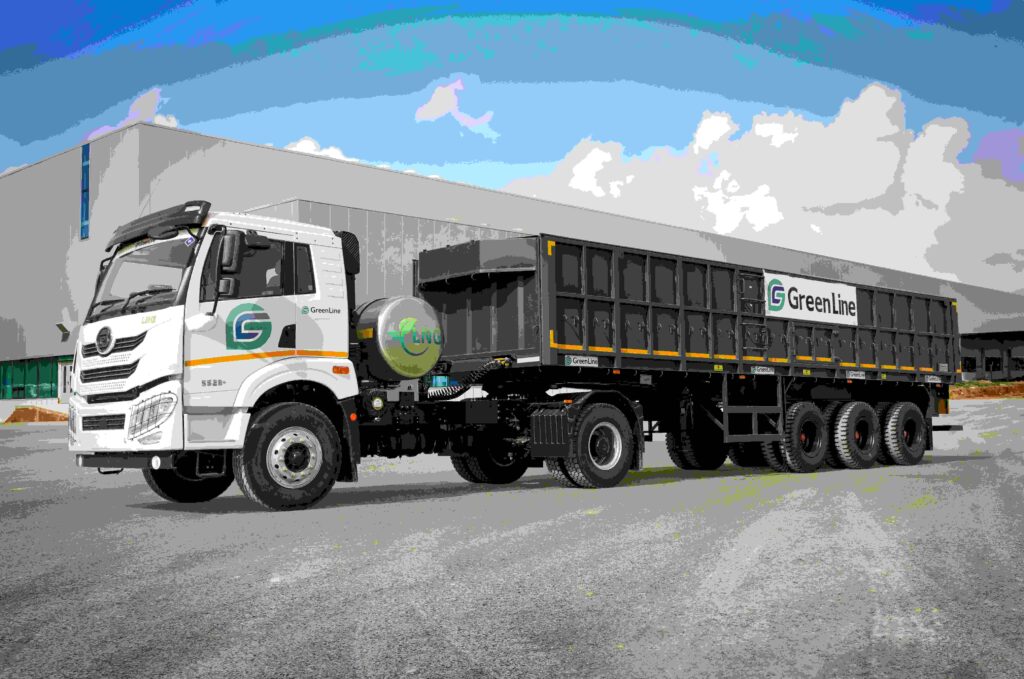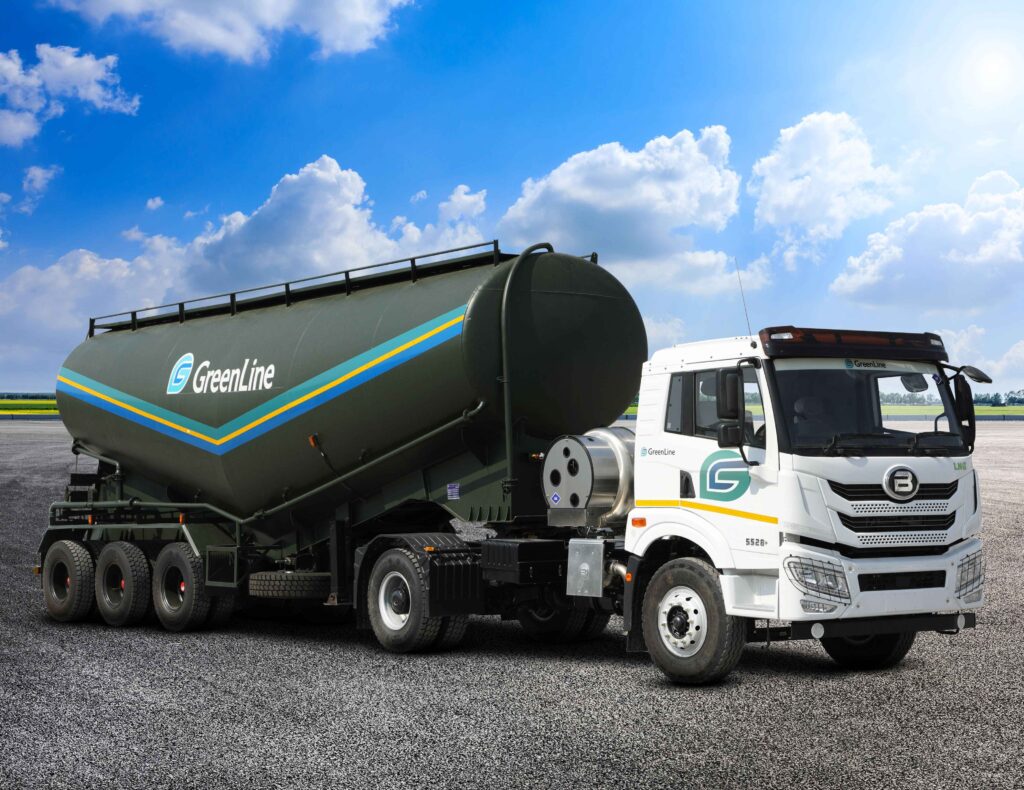
GreenLine Mobility Solutions Ltd, an integral part of Essar’s Green Mobility initiative, is leading the charge in decarbonising India’s transportation and logistics sector. Committed to significantly reducing carbon emissions from road logistics, GreenLine operates as a fleet operator of LNG-powered trucks, supported by its subsidiary Ultra Gas & Energy Ltd (UGEL), which leads the establishment of LNG fuel hubs.
The truck market in India comprises around 4 million trucks. With the necessary support from customers, bankers, and financing, GreenLine aims to invest Rs. 5,000 crore to deploy at least 5,000 LNG trucks in the next two years.
“LNG-powered trucks reduce CO2 emissions by up to 30%. By deploying an additional 5,000 LNG trucks, GreenLine is poised to significantly contribute to decarbonising India’s logistics sector and fostering a greener future for generations to come,” said Anand Mimani, CEO of GreenLine Mobility Solutions Ltd.

With an initial investment of Rs. 300 crore, GreenLine’s fleet currently includes over 350 LNG-powered trucks, making it the largest fleet of its kind in the country. Each of Greenline’s heavy-duty trucks weighs 55 tonnes with a payload capacity of 40 tonnes along with a remarkable range of upto 1,400 km on a single filling. These advanced vehicles have demonstrated impressive reductions in toxic emissions compared to traditional diesel-powered trucks. GreenLine currently serves a diverse range of clients across various industries, including Cement, Steel, Metals & Mining, FMCG, Express Cargo, Oil & Gas, Chemicals, and Consumer goods.
“We are actively engaging in discussions with like-minded corporations who share our environmental goals. Through the deployment of our LNG-powered trucks, we are helping them in their efforts to reduce Scope 3 emissions,” Mimani added.

The Essar Green Mobility Venture, comprising Blue Energy Motors, GreenLine Mobility Solutions, and its subsidiary Ultra Gas & Energy Ltd, aims to reduce approximately 2 million tons of CO2 emissions over the next few years.